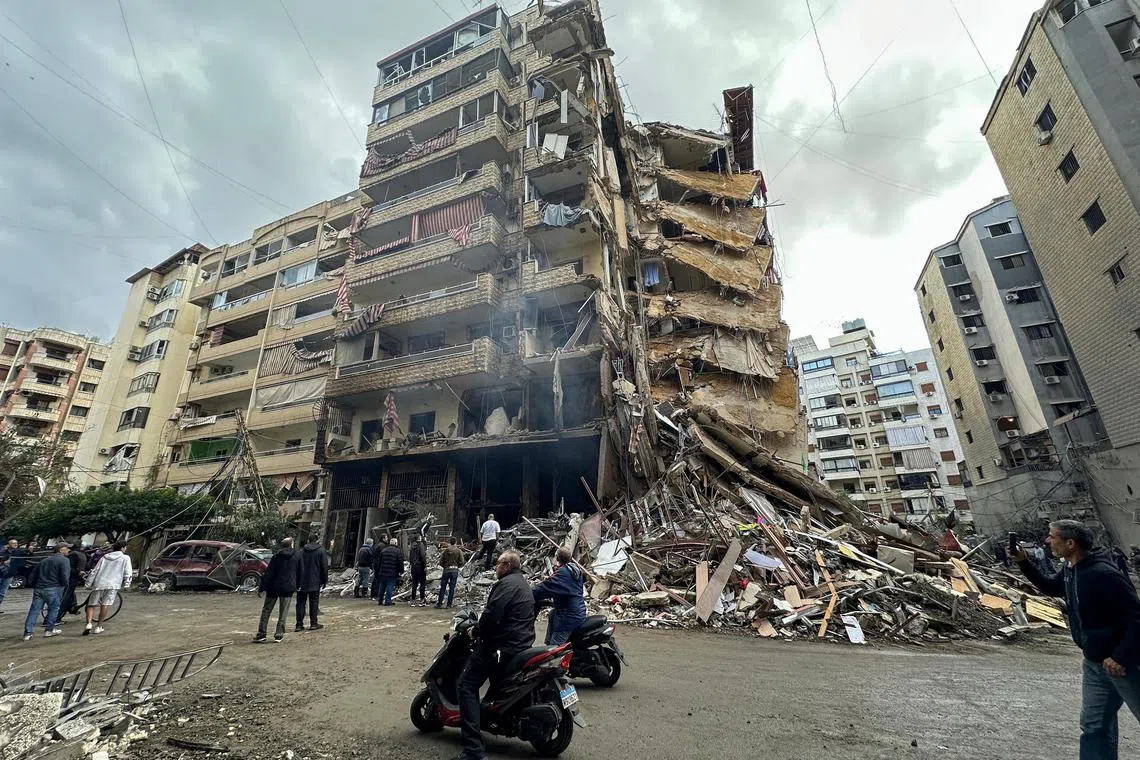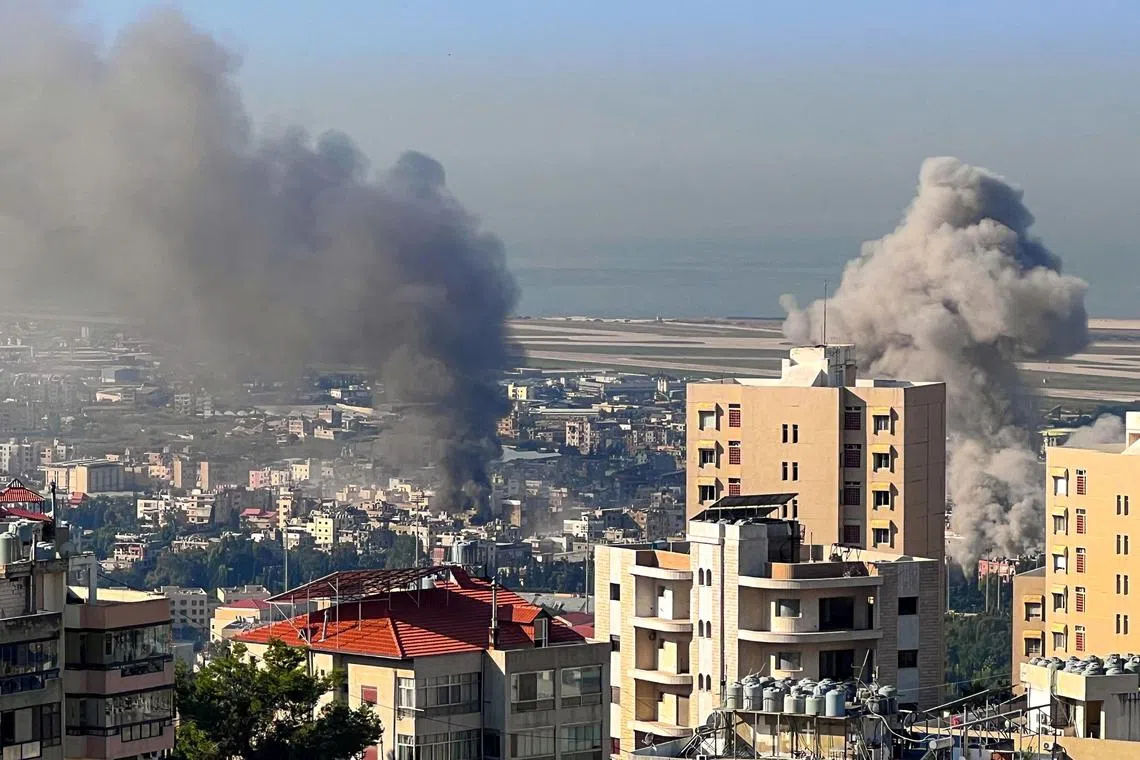Israel, Hezbollah ‘days away’ from ceasefire deal but issues remain
Sign up now: Get ST's newsletters delivered to your inbox

Israel carried out air strikes on the southern suburbs of Beirut, Lebanon, on Nov 25, and said it struck Hezbollah military headquarters.
PHOTO: EPA-EFE
JERUSALEM – Israel is moving towards a ceasefire in the war with Lebanon’s Hezbollah but there are still issues to address, its government said on Nov 25, while the Israeli ambassador to the United States was quoted as saying that a deal could happen within days.
Efforts to clinch a truce appeared to be advancing last week when US mediator Amos Hochstein declared significant progress after talks in Beirut before holding meetings in Israel and then returning to Washington.
But hostilities have intensified in parallel with the diplomatic movement.
Over the weekend, Israel carried out powerful air strikes, one of which killed at least 29 people in central Beirut, while the Iran-backed Hezbollah unleashed one of its biggest rocket salvoes yet
“We are moving in the direction towards a deal, but there are still some issues to address,” Israeli government spokesman David Mencer said, without elaborating.
Mr Michael Herzog, the Israeli Ambassador to the US, told Israel’s GLZ radio an agreement was close and “it could happen within days”.
“We just need to close the last corners,” he was quoted as saying in a post on X by GLZ senior anchorman Efi Triger.
There have been similar predictions by other Israeli and US officials in recent weeks, and it remains unclear if Hezbollah would accept a deal.
Far-right National Security Minister Itamar Ben-Gvir said Israel must press on with the war until “absolute victory”. Addressing Israeli Prime Minister Benjamin Netanyahu on X, he said: “It is not too late to stop this agreement!”
He added that it would be a “historic missed opportunity” to crush Hezbollah.
But Mr Netanyahu still looks like he is able to secure Cabinet support for the deal.

Smoke billowing over Beirut’s southern suburbs after Israeli strikes, as seen from Baabda, Lebanon, on Nov 23.
PHOTO: REUTERS
Moving chess pieces
Mr Hochstein, the White House envoy, was in Lebanon and Israel last week to try to clinch a ceasefire before US President Joe Biden hands over to President-elect Donald Trump in January.
Another US envoy, Deputy Assistant Secretary of Defence Daniel Shapiro, has been in Israel for what local media said were talks on future security arrangements in Lebanon.
According to Army Radio, once Mr Netanyahu’s security Cabinet signs off on a truce, Washington will take it to Beirut, where government officials have been serving as intermediaries for Hezbollah.
Last week, one of Hezbollah’s main political allies, Lebanese House Speaker Nabih Berri, said there was progress but there were still “technical details” to resolve.
The conflict between Israel and Hezbollah spiralled into full-scale war
Israel has dealt major blows to Hezbollah, killing its leader Sayyed Hassan Nasrallah and other top commanders and inflicting massive destruction in areas of Lebanon where the group holds sway, including Beirut’s southern suburbs.
Now in Israel’s hands
Israel carried out more air strikes on the southern suburbs known as Dahiyeh on Nov 25, saying it hit Hezbollah’s military headquarters and that it issued advance warnings for residents to evacuate the largely deserted area.
Hezbollah leader Sheikh Naim Qassem said last week his group has reviewed and given feedback on the US ceasefire proposal and any truce is now in Israel’s hands
The US-drafted proposal entails an initial 60-day suspension of hostilities, during which Hezbollah fighters would move north of the Litani River, about 30km away from the Israeli border.
Israel also wants the Lebanese army, which is separate from Hezbollah, to deploy in the south of Lebanon, beefing up a contingent of UN peacekeepers and helping to ensure the militant group does not operate there.
The Israeli government wants the right to resume strikes in Lebanon in the event of infractions by Hezbollah. The Lebanese government and Hezbollah have pushed back at that demand.
Israel says its aim is to secure the return home of tens of thousands of people evacuated from its north due to rocket attacks by Hezbollah, which opened fire in support of Hamas at the start of the Gaza war in October 2023.
Israel’s offensive has forced more than a million people from their homes in Lebanon. REUTERS, BLOOMBERG


